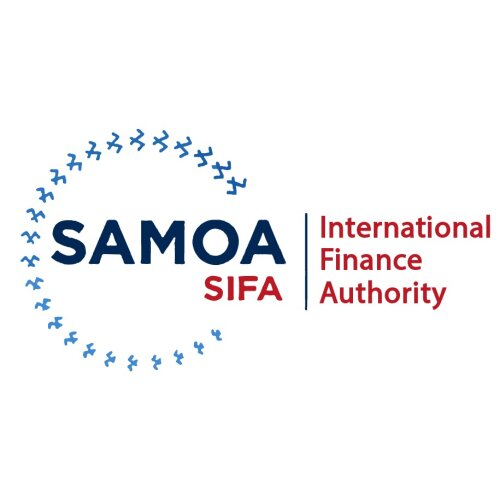Best Restructuring & Insolvency Lawyers in Samoa
Share your needs with us, get contacted by law firms.
Free. Takes 2 min.
Or refine your search by selecting a city:
List of the best lawyers in Samoa
About Restructuring & Insolvency Law in Samoa
Restructuring and insolvency law in Samoa addresses the legal processes that apply when individuals or businesses cannot meet their financial obligations. These laws provide procedures for reorganizing, restructuring, or winding up the affairs of insolvent entities, protecting the rights of creditors and debtors, and striving for fair outcomes. The main piece of legislation governing this area is the Companies Act 2001, supported by court rules and regulations that outline formal insolvency proceedings and related matters. In Samoa, restructuring and insolvency law helps maintain financial stability and fair treatment for all stakeholders during challenging times.
Why You May Need a Lawyer
Legal assistance is crucial if you find yourself or your business in financial distress. Common situations where legal help in restructuring and insolvency may be necessary in Samoa include:
- Facing mounting debts and unable to negotiate favorable terms with creditors - Receiving legal notices regarding overdue payments or bankruptcy threats - Being a creditor to an individual or company that has become insolvent - Wanting to restructure a business to improve its financial health or to avoid insolvency - Needing guidance through formal procedures such as liquidation, receivership, or administration - Protecting directors and shareholders from personal liability - Navigating cross-border insolvency issues - Seeking advice on how to recover assets or maximize recoveries during insolvency - Understanding your rights and obligations under the law - Ensuring compliance with local legal requirements during a restructuring process
A qualified lawyer can help you understand your options, comply with all legal requirements, represent your interests with creditors or in court, and propose practical strategies to protect your assets and reputation.
Local Laws Overview
Samoa’s restructuring and insolvency framework is driven primarily by the Companies Act 2001. Here are some of the key features of local laws:
- Insolvency Tests: Legal insolvency is generally established when a person or business is unable to pay its debts as they become due. - Liquidation Proceedings: The law sets out how companies can be voluntarily or compulsorily wound up, including the roles and powers of official liquidators. - Receivership: Creditors with secured interests can appoint receivers to manage or realize assets for debt repayment. - Administration: Samoa law allows for the appointment of administrators to manage company affairs temporarily with the goal of achieving a better return for creditors. - Creditor Arrangements: Debtors and creditors can enter into arrangements or compromises, under court supervision, to restructure debt and avoid liquidation. - Director Duties: Directors must act in the best interests of the company and may become personally liable if they allow the company to trade while insolvent. - Protections for Creditors: The law provides for equitable distribution of assets and prioritizes certain creditors in the event of insolvency. - Cross-Border Insolvency: There are provisions dealing with insolvent entities with assets or creditors outside Samoa. - Court Supervision: The Supreme Court of Samoa oversees many insolvency and restructuring processes. - Personal Bankruptcy: There are formal procedures governing bankruptcy of individuals, not just companies.
Frequently Asked Questions
What is insolvency?
Insolvency means an individual or company cannot pay their debts when they become due. It is both a cash flow and balance sheet assessment, and triggers certain legal procedures.
What is the difference between liquidation and administration?
Liquidation is the process of winding up a company’s operations to distribute assets to creditors. Administration is a temporary process where an independent administrator takes control to try to save the company or achieve the best outcome for creditors.
Can I avoid liquidation through restructuring?
Yes, it is sometimes possible to avoid liquidation by restructuring debts, negotiating with creditors, or entering into formal arrangements under court supervision.
What happens to employees during insolvency?
Employee rights are generally protected by law and employees may rank as preferred creditors for unpaid wages or entitlements, subject to statutory limits.
What are the director’s responsibilities during insolvency?
Directors must act in good faith and in the company’s best interests and should not continue trading if the company is insolvent, as personal liability may result.
Can a creditor force my company into insolvency?
Yes, if certain legal requirements are met, a creditor may petition the court to wind up your company or begin insolvency proceedings to recover their debts.
Is bankruptcy the same as insolvency?
Insolvency refers to an inability to pay debts, while bankruptcy is a specific legal process for declaring an individual insolvent under formal court proceedings.
What documents are needed to start insolvency proceedings?
You generally need financial statements, a list of assets and liabilities, details of creditors, and supporting evidence of insolvency or inability to pay debts.
How are assets distributed in insolvency?
Assets are distributed according to legal priorities set by law. Secured creditors are paid first, followed by preferential creditors like employees, and then unsecured creditors.
Can foreign creditors participate in Samoan insolvency proceedings?
Yes, subject to local laws and any applicable international treaties, foreign creditors may participate and lodge claims in Samoan insolvency cases.
Additional Resources
If you are seeking information or assistance regarding restructuring and insolvency in Samoa, consider contacting the following:
- The Ministry of Commerce, Industry and Labour (MCIL), which oversees company registrations and regulation - The Office of the Registrar of Companies, where company and liquidation notices are filed - The Supreme Court of Samoa, which supervises most insolvency cases - Samoan law firms specializing in restructuring and insolvency matters - Local accountants or insolvency practitioners who can assist with practical or financial assessments - Business advisory services offered by small business bureaus or chambers of commerce
Next Steps
If you believe you may need legal assistance with restructuring and insolvency issues in Samoa, consider the following steps to protect your interests:
- Document your financial position, including all assets, liabilities, and recent correspondence with creditors - Seek independent legal advice from a lawyer experienced in Samoan insolvency and restructuring law - Arrange an initial consultation to discuss your options, potential risks, and strategies for resolution - Act quickly. Delays can reduce the range of options available and potentially expose you to personal liability - Cooperate with professionals such as accountants or insolvency practitioners as needed - Follow your lawyer’s advice and ensure you comply with all legal and regulatory requirements
Taking early and informed action is the best way to achieve the most favorable result, whether you are protecting your business, personal finances, or creditor rights in Samoa.
Lawzana helps you find the best lawyers and law firms in Samoa through a curated and pre-screened list of qualified legal professionals. Our platform offers rankings and detailed profiles of attorneys and law firms, allowing you to compare based on practice areas, including Restructuring & Insolvency, experience, and client feedback.
Each profile includes a description of the firm's areas of practice, client reviews, team members and partners, year of establishment, spoken languages, office locations, contact information, social media presence, and any published articles or resources. Most firms on our platform speak English and are experienced in both local and international legal matters.
Get a quote from top-rated law firms in Samoa — quickly, securely, and without unnecessary hassle.
Disclaimer:
The information provided on this page is for general informational purposes only and does not constitute legal advice. While we strive to ensure the accuracy and relevance of the content, legal information may change over time, and interpretations of the law can vary. You should always consult with a qualified legal professional for advice specific to your situation.
We disclaim all liability for actions taken or not taken based on the content of this page. If you believe any information is incorrect or outdated, please contact us, and we will review and update it where appropriate.
Browse restructuring & insolvency law firms by city in Samoa
Refine your search by selecting a city.











